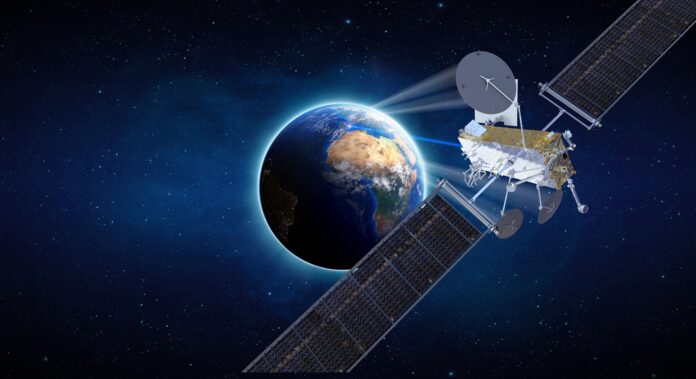
Thales Alenia Space, the joint venture between Thales and Leonardo, has achieved a major breakthrough in optical data transmission technology. Together with its partners, the company has successfully demonstrated a high-power optical data transmission system for future geostationary communication satellites, achieving record-breaking levels of performance in the process.
This achievement represents a significant milestone in the development of next-generation satellite systems, which are set to play a crucial role in bridging the digital divide and providing broadband connectivity for all by 2025. With optical feeder links considered a highly promising technology for meeting future VHTS system requirements, the results of the VERTIGO project could prove pivotal in maintaining the EU’s technological leading edge and industry competitiveness.
The VERTIGO (Very High Throughput Satellite-Ground Optical Link) project was launched in June 2019 and concluded at the beginning of 2023, demonstrating concepts allowing for a significant capacity increase of feeder links through the use of state-of-the-art optical technologies. The project addressed key enabling technologies such as high optical power generation, high efficiency waveforms, and atmospheric impairments mitigation.
The latest demonstration was performed at the Thales laboratory in Palaiseau, France. It saw the generation and transmission of optical communication signals carrying data at 25 Gbps at a record-breaking optical power of 97 W. This opens the way to 100W-class transmissions and represents a significant increase in capacity compared to current technologies.
The breakthrough was achieved by splitting a modulated optical signal into two paths, each amplified through an individual state-of-the-art G&H high power amplifier, and then coherently combining the two amplifier outputs. This not only demonstrated high and very high optical power generation but also proved the possibility to transmit telecom signals at very high power while maintaining data integrity, a necessary condition for use in free-space optical links over long distances.
Following the successful indoor trials, outdoor trials of free-space optical links were conducted in Summer 2022, which notably demonstrated a record transmission at 1 Tbps over an atmospheric optical path of 53 km. The next step will be to target a full-scale coherent laser link between a geostationary satellite at an altitude of around 36,000 km and a ground station.
Speaking about the achievement, a spokesperson for Thales Alenia Space said: “This is a key success for the development of future geostationary communication satellites using optical feeder links to increase significantly the capacity currently available. These solutions will play a key role in bridging the digital divide and providing broadband connectivity for all by 2025. The objective is also to boost satellite capacity in order to reduce the number of satellites required to meet users’ demand.”
The VERTIGO project received funding from the European Union’s Horizon 2020 research and innovation programme under grant agreement No 822030. It involved a fully complementary consortium composed of CREONIC GmbH, ETH Zürich, Fraunhofer HHI, G&H, LEO Space Photonics R&D, ONERA, Thales Alenia Space in France and Switzerland, and Thales Research & Technology.
The breakthrough achieved by Thales Alenia Space and its partners could prove critical in helping to close the digital divide and provide broadband connectivity for all by 2025. The joint venture between Thales and Leonardo, along with G&H and Leo Space Photonics R&D, successfully demonstrated a high-power optical data transmission system at the Thales laboratory in Palaiseau, France, marking a key milestone in the development of future geostationary communication satellites.









